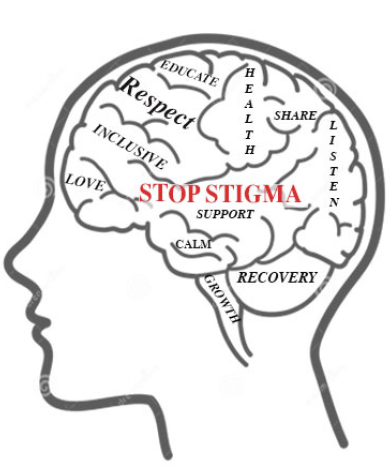Mental health is a topic that has long been shrouded in stigma and ignorance. Many individuals who suffer from mental health issues, such as depression, anxiety, and bipolar disorder, often feel isolated and afraid to talk openly about their struggles. However, breaking this stigma is crucial for the overall well-being of individuals and society as a whole. In this article, we will explore the importance of discussing mental health openly and provide some tips for navigating these conversations.
The Importance of Breaking the Stigma
1. Encouraging Help-Seeking Behavior:
One of the primary reasons for breaking the stigma surrounding mental health is to encourage individuals to seek help when needed. The fear of judgment and shame often prevents people from seeking professional help or sharing their struggles with friends and family. By fostering an environment that promotes open discussion, we can help individuals feel more comfortable reaching out for support.
2. Creating Awareness and Understanding:
Breaking the stigma also goes hand in hand with creating awareness and understanding about mental health issues. Education plays a vital role in dispelling misconceptions and providing accurate information. When we openly discuss mental health, we can help others gain a better understanding of the challenges faced by individuals with mental health conditions and foster empathy.
Tips for Navigating Mental Health Discussions
1. Choose the Right Setting:
When initiating a mental health discussion, it’s crucial to choose a safe and private setting. Opt for a location where the individual feels comfortable and is less likely to face interruptions. This can help create a safe space for open conversation and reduce the potential of embarrassment or judgment.
2. Be Mindful of Language:
Language plays a significant role in shaping our attitudes towards mental health. It’s essential to utilize inclusive and non-stigmatizing language when discussing mental health. Avoid derogatory terms or jokes that may perpetuate stereotypes. Instead, use respectful and empathetic language that demonstrates your willingness to understand and support the individual.
3. Listen Without Judgment:
Active listening is a crucial element in any mental health discussion. When someone opens up about their experiences, it’s essential to listen without judgment. Resist the urge to interject with your own opinions or minimize their struggles. Instead, provide a safe space for the individual to express themselves and validate their feelings.
4. Educate Yourself:
Before engaging in mental health discussions, take the time to educate yourself about different mental health conditions. Understanding the symptoms, available treatments, and potential challenges can help you have more informed conversations. Additionally, it enables you to provide appropriate support to those in need.
Conclusion
Breaking the stigma surrounding mental health is a necessary step towards creating a society that is compassionate and understanding. By encouraging open discussions, choosing the right settings, using mindful language, and actively listening, we can help individuals feel supported and valued. Remember, mental health affects us all, and navigating these conversations play a crucial role in promoting overall well-being.

